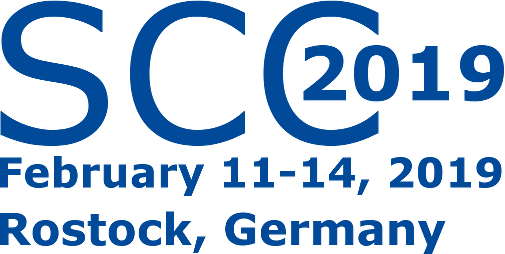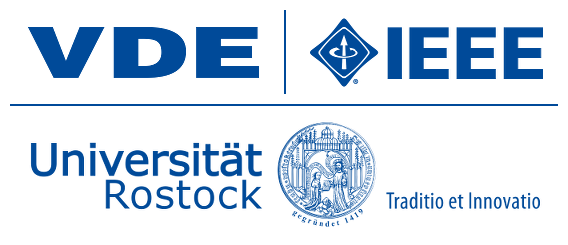[Start of content]
Invited Speakers
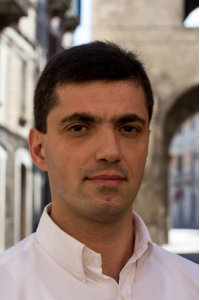
Cristian Antonelli
University of L'Aquila, Italy
Talk: "Kramer-Kronig Digital Optical Field Reconstruction"
Cristian Antonelli received his MSc and PhD degrees in Electrical Engineering from the University of L’Aquila, Italy, in 2002 and 2006, respectively. During his graduate studies, he worked on the “Hinge Model” for the time dynamics of polarization-mode dispersion in lightwave systems within a collaboration with AT&T Labs, NJ, where he was a visiting scientist in the summers of 2004 and 2005. In 2006 he spent six months at the Research Laboratory of Electronics at MIT, performing research on the theory of mode-locked fiber lasers. Since 2007 he has been a senior research scientist first at CNISM, the Italian inter-university consortium for the physics of matter, and then at the University of L’Aquila. In April 2014 he joined the Department of Physical and Chemical Sciences of the same university as an assistant professor. His work focuses on the modelling and characterization of fiber-optic communication systems, including polarization-mode dispersion and polarization-dependent loss, secure communications based on chaos-encryption and quantum cryptography, fundamental energy consumption limits, semiconductor optical amplifier-based devices for access networks, and linear and nonlinear propagation effects in space-division multiplexed transmission. Cristian Antonelli has served on the committees of several major international conferences and he is currently serving as a technical committee member for the Optical Fiber Communication Conference (OFC) 2015.
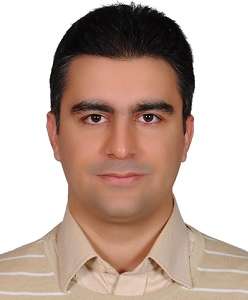
Vahid Aref
Nokia Bell Labs, Germany
Talk: "The Nonlinear Fourier Transform in Optical Communications"
Vahid Aref is a member of technical staff in IP and Optical Networks research lab, Nokia Bell Labs. Dr. Aref earned his B.Sc. and M.Sc. in electrical engineering from Sharif University of Technology, Iran, in 2006 and 2008. He received his PhD degree in computer and communication sciences from École Polytechnique Fédérale de Lausanne (EPFL), Lausanne, Switzerland, in March 2014.
Before Joining Bell Labs, he was a research assistant in the communication theory laboratory (LTHC), EPFL, from 2010 till 2014. In collaboration with Bell Labs, he conducted post-doctoral research in the institute of telecommunications (INÜ) at University of Stuttgart in 2014. Since 2016, Dr. Aref also serves as guest lecturer at the University of Stuttgart.
Vahid's fields of research include coding and information theory, optical communications and nonlinearity mitigation techniques.
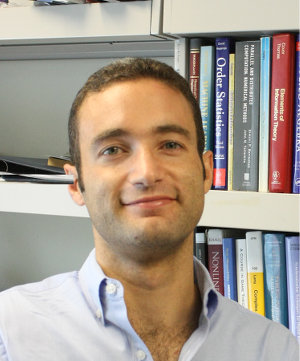
Osvaldo Simeone
King's College, Great Britain
Talk: "Fog Networking for the Coexistence of Ultra-Reliable and Mobile Broadband 5G Services"
Osvaldo Simeone is a Professor of Information Engineering with the Centre for Telecommunications Research at the Department of Informatics of King's College London. He received an M.Sc. degree (with honors) and a Ph.D. degree in information engineering from Politecnico di Milano, Milan, Italy, in 2001 and 2005, respectively. From 2006 to 2017, he was a faculty with the Electrical and Computer Engineering (ECE) Department at New Jersey Institute of Technology (NJIT), where he was affiliated with the Center for Wireless Information Processing (CWiP). His research interests include wireless communications, information theory, optimization and machine learning. Dr Simeone is a co-recipient of the 2017 JCN Best Paper Award, the 2015 IEEE Communication Society Best Tutorial Paper Award and of the Best Paper Awards of IEEE SPAWC 2007 and IEEE WRECOM 2007. He was awarded a Consolidator grant by the European Research Council (ERC) in 2016. His research has been supported by the U.S. NSF, the ERC, the Vienna Science and Technology Fund, as well by a number of industrial collaborations. He currently serves in the editorial board of the IEEE Signal Processing Magazine, and he is a Distinguished Lecturer of the IEEE Information Theory Society. Dr Simeone is a co-author of a monograph, an edited book published by Cambridge University Press and more than one hundred research journal papers. He is a Fellow of the IEEE.
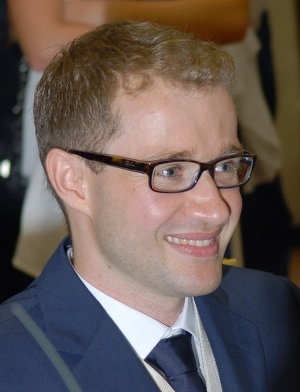
Jakob Hoydis
Nokia Bell Labs, France
Talk: "Deep Learning in Communications: From Theory to Practice"
Jakob Hoydis received the Dipl.Ing. degree in electrical engineering and information technology from RWTH Aachen University, Germany, and the Ph.D. degree from Supélec, Gif-sur-Yvette, France, in 2008 and 2012, respectively. He was a co-founder and the CTO of the social network SPRAED and worked for Alcatel-Lucent Bell Labs, Stuttgart, Germany. He is a member of Technical Staff with Nokia Bell Labs, France, where he is investigating applications of deep learning for the physical layer. He has co-authored the textbook Massive MIMO Networks: Spectral, Energy, and Hardware Efficiency in 2017. His research interests are in the areas of machine learning, cloud computing, SDR, large random matrix theory, information theory, signal processing, and their applications to wireless communications. He was a recipient of the 2012 Publication Prize of the Supélec Foundation, the 2013 VDE ITG Förderpreis, and the 2015 Leonard G. Abraham Prize of the IEEE COMSOC. He received the IEEE WCNC 2014 Best Paper Award and has been nominated as an Exemplary Reviewer 2012 for the IEEE COMMUNICATION LETTERS.
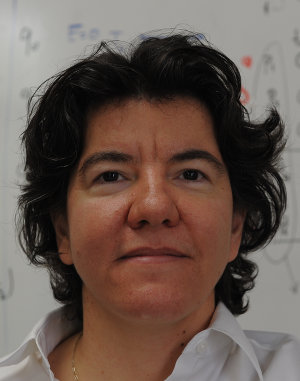
Sennur Ulukus
University of Maryland, USA
Talk: "Private Information Retrieval Under Access Constraints"
Sennur Ulukus is a Professor of Electrical and Computer Engineering at the University of Maryland at College Park, where she also holds a joint appointment with the Institute for Systems Research (ISR). Prior to joining UMD, she was a Senior Technical Staff Member at AT&T Labs-Research. She received her Ph.D. degree in Electrical and Computer Engineering from Wireless Information Network Laboratory (WINLAB), Rutgers University, and B.S. and M.S. degrees in Electrical and Electronics Engineering from Bilkent University. Her research interests are in wireless communications, information theory, signal processing, and networks, with recent focus on private information retrieval, timely status updates over networks, energy harvesting communications, information theoretic physical layer security, and wireless energy and information transfer.
Dr. Ulukus is a fellow of the IEEE, and a Distinguished Scholar-Teacher of the University of Maryland. She received the 2003 IEEE Marconi Prize Paper Award in Wireless Communications, an 2005 NSF CAREER Award, the 2010-2011 ISR Outstanding Systems Engineering Faculty Award, and the 2012 ECE George Corcoran Education Award. She is a Distinguished Lecturer of the Infomation Theory Society for 2018-2019. She is on the Editorial Board of the IEEE Transactions on Green Communications and Networking since 2016. She was an Editor for the IEEE Journal on Selected Areas in Communications–Series on Green Communications and Networking (2015-2016), IEEE Transactions on Information Theory (2007-2010), and IEEE Transactions on Communications (2003-2007). She was a Guest Editor for the IEEE Journal on Selected Areas in Communications (2015 and 2008), Journal of Communications and Networks (2012), and IEEE Transactions on Information Theory (2011). She was a general TPC co-chair of 2017 IEEE ISIT, 2016 IEEE Globecom, 2014 IEEE PIMRC, and 2011 IEEE CTW.
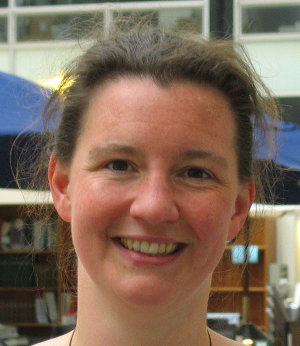
Tanja Lange
Technische Universiteit Eindhoven, The Netherlands
Talk: "Code-Based Cryptography"
Tanja Lange joined the Technische Universiteit Eindhoven (The Netherlands) as Full Professor in 2006. Her work bridges the gaps between algebraic geometry, theoretical cryptography, and real-world information security. She is an expert on curve-based cryptography and post-quantum cryptography.
Prof. Dr. Lange is on the editorial board for 3 journals and serves on 3 steering committees, including the workshop series on Post-Quantum Cryptography. She coordinates the EU-H2020 project PQCRYPTO -- Post-quantum cryptography for long-term security pqcrypto.eu.org
She is a regular speaker at crypto and security conferences and has written more than 70 articles and books.
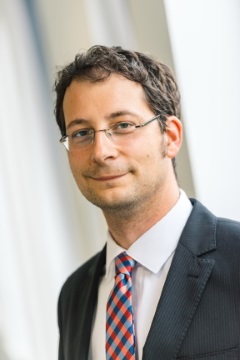
Tim Güneysu
Ruhr-Universität Bochum, Germany
Talk: "Codes in Cryptography - Essential Components for Secure Systems"
Tim Güneysu is professor and head of the chair for Security Engineering at Ruhr-Universität Bochum, Germany. Since 2016 he is also affiliated with the Cyber Physical Systems (CPS) division of the German Research Center for Artificial Intelligence (DFKI) in Bremen. Prior to being assistant professor at Ruhr-University Bochum, he was a senior researcher and visiting professor with UMass Amherst and the Hubert Curien Lab in Saint-Etienne. Tim’s primary research topics are in the secure design and implementation of (embedded) systems, including aspects such as long-term secure cryptographic implementation, the design of security layers/architectures and related aspects of hardware-based security. He published and contributed to more than 100 peer-reviewed journal and conference publications in the area of applied security and cryptography.
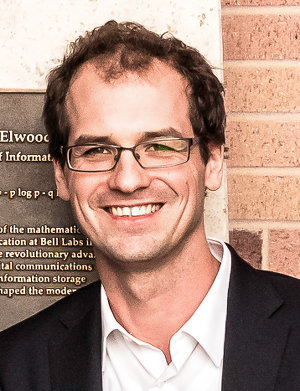
Georg Böcherer
Huawei Research Labs, France
Talk: "Probabilistic Constellation Shaping in Optical Communications"
Georg Böcherer was born in Freiburg im Breisgau, Germany. He obtained his M.Sc. degree in Electrical Engineering and Information Technology from the ETH Zürich, Switzerland, in 2007, his Ph.D. degree from the RWTH Aachen University, Germany, in 2012. From 2012 to 2017, he worked as a senior researcher and lecturer at the Institute for Communications Engineering, Technical University of Munich, where he received his Dr.-Ing. habil. degree in 2017. Since December 2017, G. Böcherer works as senior research scientist at the Paris Research Center of Huawei Technologies France. His research interests are channel coding, probabilistic shaping, and information theory for optical, wireless, and wired communications. He served as technical program committee member at various IEEE conferences and he is currently serving as associate editor for the IEEE Communications Letters and the IEEE Transactions on Communications. He received the E-plus award for his Ph.D. thesis and his Probabilistic Amplitude Shaping (PAS) scheme for capacity-achieving and rate-flexibel transmission won the third prize at the 2015 Bell Labs Prize and G. Böcherer is the recipient of the 2017 Johann-Philipp-Reis-Preis.
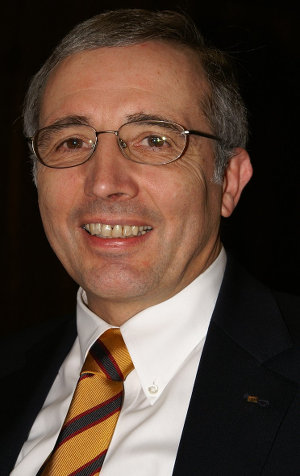
Josef A. Nossek
Universidade Federal do Ceará, Brasil
Talk: "The Why and How of Coarse Quantization in Wireless Communication Systems"
Coauthor: Amine Mezghani
Josef A. Nossek received the Dipl.-Ing. and Dr.techn. degrees in Electrical Engineering from Vienna University of Technology, Austria in 1974 and 1980, respectively. He joined Siemens AG, Germany, in 1974, where he was engaged in filter design for communication systems. From 1987 to 1989 he was Head of the Radios Systems Design Department, where he was instrumental in introducing high-speed VLSI signal processing into digital microwave radio systems. From 1989 to 2016, he has been Head of the Institute for Circuit Theory and Signal Processing at the Technische Universität München. In 2016 he joined the Universidade Federal do Ceara, Fortaleza, Brasil as Professor Titular Livre (Full Professor). He was the President Elect, President and Past President of the IEEE Circuits and Systems Society in 2001, 2002 and 2003 respectively. He was President of the Verband der Elektrotechnik, Elektronik, Informationstechnik (VDE) in 2007 – 2008 and the President of the Convention of National Associations of Electrical Engineers of Europe (EUREL) in 2013. He received the ITG Best Paper Award in 1988, the Mannesmann Mobilfunk (now Vodafone) Innovations Award in 1997 and the Award for Excellence in Teaching from the Bavarian Ministry for Science, Research and Art in 1998. From the IEEE Circuits and Systems Society he received the Golden Jubilee Medal for Outstanding Contributions to the Society in 1999 and the Education Award in 2008. He received the Order of Merit of the Federal Republic of Germany (Bundesverdienstkreuz am Bande) in 2008. In 2009 he became Member of the National Academy of Engineering (acatech), in 2011 he received the IEEE Guillemin-Cauer Best Paper Award and in 2013 the honorary doctorate (Dr.h.c.) from the Peter Pazmany Catholic University, Hungary. He received the VDE Ring of Honor in 2014 and the TUM Emeritus of Excellence in 2016.
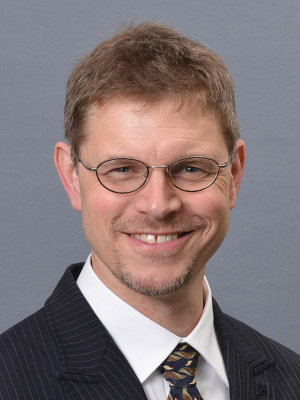
Brian Michael Kurkoski
Japan Advanced Institute of Science and Technology, Japan
Talk: "Information-Theoretic Quantization and Its Connection to Classification"
Brian M. Kurkoski is an Associate Professor at the Japan Advanced Institute of Science and Technology (JAIST) in Nomi, Japan. Born in Portland, Oregon, USA, he received the B.S. degree from the California Institute of Technology in 1993, and then worked at two California startups. He received the M.S. and Ph.D. degrees from the University of California San Diego in 2000 and 2004, respectively. He received a JSPS Postdoctoral Fellowship from 2004 to 2006, while at the University of Electro-Communications in Tokyo, Japan, where he continued as Associate Professor from 2007 to 2012. He has been at JAIST since 2012. He was an associate editor for IEICE Transactions on Fundamentals of Electronics, Communications and Computer Sciences from 2010 to 2014. He is chair of the Data Storage Technical Committee, a technical committee of the IEEE Communications Society for 2017-2018, and was secretary for 2013-2016. He is active in the organization of conferences and workshops on information theory, coding theory and their application to data storage.
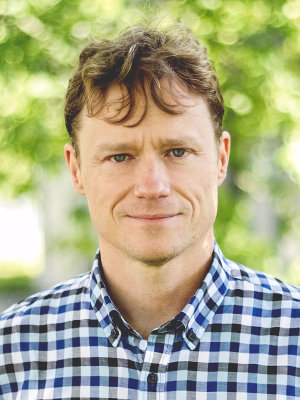
Mikael Skoglund
KTH Royal Institute of Technology, Sweden
Talk: "On the capacity of private information retrieval"
Mikael Skoglund received the Ph.D. degree in 1997 from Chalmers University of Technology, Göteborg, Sweden. He was appointed Docent in Signal Processing in February 2001 and Professor of Communication Theory in October 2003, both at KTH.
He joined the Dept. of Signals Sensors and Systems, KTH, in August 1997. Here he became Assistant Professor (forskarassistent) in March 1998 and Associate Professor (universitetslektor) in October 2001. He was then appointed to the Chair in Communication Theory in October 2003.
Skoglund heads the Dept. of Information Science and Engineering at KTH, and he is a founding faculty member of the ACCESS Linnaeus Center.
During 2003-09 he was an associate editor for IEEE Trans. on Communications and during 2009-12 he was on the editorial board for IEEE Trans. on Information Theory.

